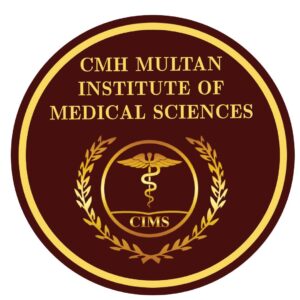Basic Sciences
- Home
- Basic Sciences
Basic Medical Sciences
The Basic Medical Sciences division of CIMS Multan comprises Departments of Anatomy, Physiology, Biochemistry, Pharmacology & Therapeutics, Pathology, Forensic Medicine & Toxicology, Community Medicine and Department of Medical Education (DME).
All the disciplines have highly experienced, dedicated and professional faculty members. The departments are fully equipped with state of the art laboratories, museums and library resources including internet facility for both faculty and students.
Departments
The course consists of Gross, Developmental and Microscopic Anatomy. Students gain practical experience by performing dissection of cadavers, reviewing systems of the human body with the help of models, specimens, computer simulations and histology slides.
The teaching of Anatomy is integrated with Physiology & Biochemistry, for a holistic view of the structure & function of major organ systems of the body. At the end of every topic, a special emphasis is laid on applied aspects through lectures and interactive discussions substantiated by clinical faculty from CMH Multan.
Case based learning and Flipped classroom techniques are integral teaching and learning strategies with incorporation of e-technology throughout the modular sessions.
In teaching of Physiology the interaction of living organisms with the environment, concepts of biological control of systems, and biophysics of cell membranes are given special emphasis.
The teaching of Physiology is integrated with other basic sciences for a holistic view of function of major organ systems of the body with special emphasis upon applied aspects through lectures and interactive discussions substantiated by clinical faculty. Physiology also includes Case Based Learning and Flipped Classroom techniques with incorporation of e-technology for comprehensive understanding. Practical work in Physiology lab is conducted on actual machines, measuring pulmonary, muscular and nerve functions.
The course aims to provide students an understanding of basic principles of structure and functions of various elements that constitute living cells.
The curriculum is structured into three distinct portions with logical approach to the subject:
- Nature of bio-molecules
- Synthesis, breakdown and biological functions of essential bio-molecules
- Understanding of chemical and molecular processes which forms the basis of health and disease
The lab work assists in elucidating the concepts discussed in lectures and seminars. Students are also introduced to the concepts of human chemistry where measurement of bio-molecules is used for diagnosis and monitoring of different disease states.
The understanding of Pharmacology is strengthened by CBL and interactive sessions which are made an integral part of the teaching methodology to encourage participation of students in the learning process.
A well-equipped laboratory has been provided where students are exposed to the basic experimental techniques of drug research on laboratory animals, isolated tissues and organs in situ. Prescription writing and elementary biostatistics are also the essential components of practical training.
Pathology department possesses very well equipped laboratories including Hematology, Chemical Pathology, Histopathology and Microbiology units. Currently twenty FCPS trainees are undergoing training in Histopathology and Clinical Pathology.
The Hematology section and blood bank are the premium facilities in the region catering the needs of a wide-range of patient population requiring transfusions.
Forensic Medicine course includes application of medical jurisprudence. Students are taught the medico-legal systems of the country, duties and responsibilities of the doctors and medical aspects of law to establish facts in civil or criminal legal cases such as an investigation into the cause, manner and time since death etc.
Case based learning and Flipped classroom techniques are integral teaching and learning strategies with incorporation of e-technology throughout the modular sessions.
Curriculum of Community Medicine is planned to prepare the students to become community-oriented physicians and thereby contribute effectively to the healthcare system of the country.
It includes the study and application of wide range of social sciences, concepts of health economics, human behavior, socio-anthropology and social determinants of health and disease. The study of epidemiology, demography and bio-statistics are also introduced at appropriate stages. Special emphasis is given to the planning and management of primary healthcare systems and students are involved in the fieldwork under the guidance and supervision of faculty and staff.






